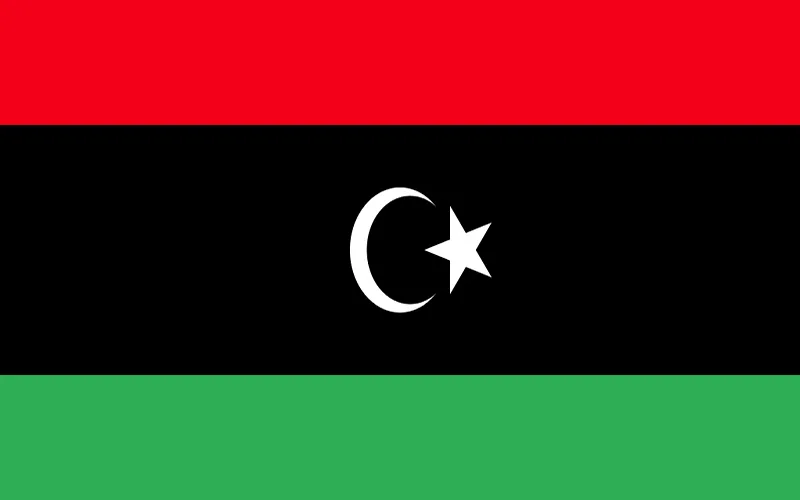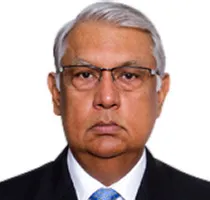Since the overthrow of the regime of Colonel Muammar Gaddafi in 2011, Libya has been plagued by violence and instability. Different militias now control most of the country, including the two largest cities -- Tripoli and Benghazi. Armed civilians have clashed with militia groups, including Islamist militias that helped oust Gaddafi, in Libya's major cities. Internecine fighting for power seems be the new norm in Libya, and the country has gradually slipped into a quagmire of civil war.
Amidst political turmoil and continuing violence in Libya, the national Parliament asked Abdullah Al-Thinni again to form a caretaker government. Abdullah Al-Thinni, of the General National Congress, took over as Prime Minister from Ali Zeidan in March 2014, but resigned after his government faced opposition and was denied recognition by a rival parliament. This came at a time when the government had lost control of most of its ministries and State institutions, forcing Parliament members and government officials to take refuge in the city of Tobruk at the border with Egypt.
Militia groups took control of Tripoli in August and established a parallel government which does not enjoy popular and international legitimacy. The political strife deepened as Libya's Supreme Court ruled the internationally recognised parliament as unconstitutional because it did not sit in Tripoli or Benghazi. It was also alleged that the parliament overstepped its authority by calling for foreign military assistance against the militias.
This ruling is a huge blow to Libya's elected government and further complicates Libya's political crisis. Politicians in Tobruk have vehemently asserted that Tripoli's courts, judges and their families have been under duress, having been threatened by the armed militias that control Tripoli. The United Nations' effort to unite the MPs in the elected body and strengthen its legitimacy to end the political crisis seems doomed. Hopes for a compromise and a coalition government have also been dashed.
Rival governments have become the bane of Libya and interim governments have retreated in the face of assault by the Misrata-based armed rebels and the Fajr (Dawn) Libya Alliance. The latter has seized Tripoli Airport, wresting control from nationalist rivals. The GNC has announced its own candidate, Omar Al-Hassi to form a "Salvation Government", adding another layer of confusion to the unfolding chaos.
There are now effectively two governments in Libya -- one in Tripoli and the other further east in Benghazi -- battling each other for influence and territory. The basic fault line is between the Islamists and the Nationalists and the struggle intensified after the Islamists lost heavily in the June Parliamentary election. Islamist leaders, alleging that the majority of members of the new Parliament were supporters of the former dictator, promptly initiated hostilities. The Libya Fajr Alliance, reportedly backed by Qatar, captured Tripoli and triggered the Egyptian-UAE airstrikes, prompting fears of a proxy war between Arab countries. Indeed Qatar has played host to the leading Islamist leader Ali Salabi and the UAE has backed Mahmoud Jibril, the leading nationalist politician.
Violence and killings have continued in Libya ever since the Libyan dictator Muammar Gaddhafi was overthrown and killed three years ago. In October 2011, the Libyan state, also known as "Jamahiriya", collapsed in the face of a massive onslaught from NATO, its regional allies and local collaborators with full support from the USA. Western military intervention not only destroyed the Gaddhafi regime but demolished and fragmented Libyan society as well, leaving Libya as a battleground for hundreds of heavily armed warring factions who have either looted weapons from state armories or received them directly from NATO and its allies.
Currently, the crisis is marked by regional alliances of armed militias based on clan and tribal affiliations. The militias have jihadist and Al-Qaida elements embedded in them, including the groups expelled from northern Mali by the French Army. A notable feature of these armed militias is their propensity to occupy and control institutions that can be used to generate financial flows and not to bring political stability by establishing a central political authority. The militias owe allegiance to local leaders and have sought to control seaports, airports and oil producing wells leading to bloody armed confrontations and killings of civilians.
In the post-Gaddhafi period, Libya had settled into a fragile compromise between heavily armed factions, though frequent skirmishes continue. In the middle of 2013, open conflict broke out between militias led by Abdelkarim Belhadj, allied with the Misrata-based Libya Shield Force and the al-Qaqaa and al-Suwaiq brigades from the inland town of Al-Zintan. There were no winners and the fighting relapsed into another fragile truce. The temporary settlement between the various armed factions again ended with the offensive in Benghazi on Islamic groups, particularly on Ansar al-Sharia, by the forces of Gen. Khalifa Hifter, an American-backed officer and a defector from the Gaddhafi regime. There is, thus, a possibility of a de facto partition of Libya into two, the Tripoli Region (in the west) and the Cyrenaica Region (in the east).
The situation in Libya has alarmed neighbouring countries like Algeria, Egypt and Tunisia. All fear the increasing influx of refugees and spread of jihadist militants into their countries, as Libya degenerates into a failed state. Algeria, already traumatised by the bloody confrontation over the Tigantourine gas facility in January 2013, has deployed its army along the Algerian-Libyan border and closed the border. Algeria has been under pressure from the USA and France to contribute in stabilising Libya. Algerian armed forces are reported to have carried out several military operations inside Libyan soil against jihadist groups, in coordination with the US and France.
Egyptian intervention in Libya has been triggered by similar concerns. Reports have surfaced that Egyptian and UAE aircraft have bombed the Fajr Libya Alliance after it captured Tripoli and wrecked the international airport. Gangs of Fajr militiamen are kidnapping people with surnames from pro-government tribes. Their self-proclaimed "prime minister" is a former Islamist guerrilla fighter and the militias seem determined to meet any opposition with force. In August this year, the new Libyan parliament (elected this June in elections that only saw a 10% voter turnout) had overwhelmingly voted in support of calling the international community to intervene in Libya. There has been no response.
Algeria can play the role of political mediator between various Libyan parties, given its extensive contacts within Libya, but remains wary of intervening, though it is clear that it is conducting substantial cross-border operations against jihadist groups. The possibility of another Islamic Caliphate emerging in North Africa is a serious concern, fueled by confirmed reports about the return of Libyan jihadists, after taking part in the fighting in Syria and Iraq. Libya is poised to sink deeper into a quagmire of chaos and violence, as the civil war rages and other Arab countries like Algeria, Egypt and the United Arab Emirates (UAE) opt for military intervention in Libya to protect their own interests. Overt intervention by Algeria and Egypt is bound to result in the de facto partition of Libya.
As a nation, Libya has witnessed tensions between the Tripolitania region in the west, Cyrenaica in the east and Fezzan to the south. Cyrenaica contains two-thirds of the oil of Libya, which holds the largest reserves in Africa. This makes the possibility of a de facto partition of the country a distinct possibility, as Libya's conflict grows more intense and civilian casualties keep mounting.
The crisis in Libya is the aftermath of the pro-democracy uprising against entrenched dictators, the so-called "Arab Spring" that began in Tunisia and swept Syria, Yemen, Egypt and Libya. Over 200,000 people have been killed in Syria, Yemen's reforms are going nowhere, Egypt is back under quasi-military rule and Libya is in throes of a civil war. Tunisia, remarkably, has produced a functioning parliamentary system and is now in the midst of a Presidential election under a new Constitution. The Arab world is in turmoil, thanks to intra-Arab rivalries, the sectarian divide and jockeying for power by major Arab countries, Iran and Turkey. Whether the democratic aspirations of its people will be fulfilled is a question that only the future can tell. Meanwhile, the bloody carnage in Libya, Iraq and Syria continues.
(The author is a Distinguished Fellow at Observer Research Foundation and a former Secretary in the Ministry of External Affairs, having served in diplomatic assignments in West Asia and North Africa)
The views expressed above belong to the author(s). ORF research and analyses now available on Telegram! Click here to access our curated content — blogs, longforms and interviews.




 PREV
PREV


